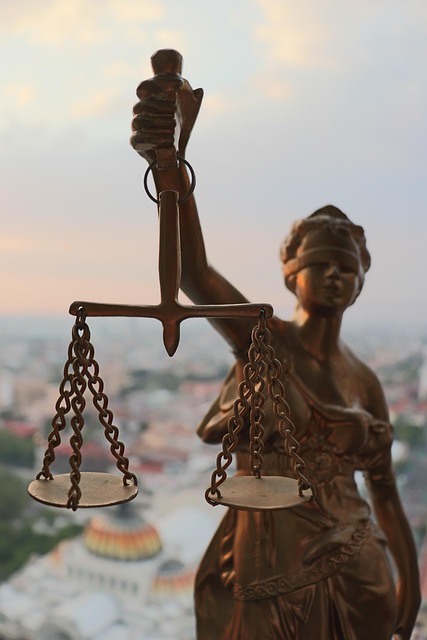Global criminal law reforms shift focus to alternative sentencing, restorative justice and addressing mental health. Awareness of rights is crucial for fairness in proceedings, while high-profile cases influence legal strategies and public perception. Technology, including surveillance and digital forensics, plays an integral role in crime prevention and successful prosecutions in the digital age.
“Stay informed with the latest developments in criminal law. Our comprehensive guide delves into critical aspects shaping legal landscapes worldwide. From recent reforms and technological advancements to high-profile cases, we break down complex issues for a deeper understanding. Learn about your rights within legal proceedings and explore how technology is revolutionizing crime prevention strategies. Discover insights that underscore the evolving nature of criminal law.”
- Latest Criminal Law Reforms and Changes
- Understanding Your Rights in Legal Proceedings
- High-Profile Cases and Their Impact
- The Role of Technology in Crime Prevention
Latest Criminal Law Reforms and Changes

The landscape of criminal law is constantly evolving, with reforms and changes aimed at enhancing justice and addressing societal needs. In recent years, many countries have implemented progressive updates to their criminal codes, reflecting a shift towards more holistic approaches to crime and punishment. These reforms often focus on alternative sentencing options, such as restorative justice practices, which prioritize rehabilitation over strict punishment.
One notable trend is the increasing emphasis on mental health and addiction issues within the criminal justice system. Recognizing that many offenders struggle with untreated conditions, several jurisdictions have introduced programs that offer specialized support and treatment instead of, or in conjunction with, traditional incarceration. These developments underscore a growing understanding in criminal law that addressing the root causes of crime can lead to more effective long-term solutions.
Understanding Your Rights in Legal Proceedings

In any legal proceeding under criminal law, it’s paramount for individuals to be aware of their rights. This knowledge is empowering and serves as a shield against potential infringements. Everyone accused of a crime, no matter how minor, has the right to remain silent—a crucial aspect that often safeguards them from self-incrimination. They are also entitled to legal counsel; this ensures they have a fair chance at defending themselves or navigating the complexities of the case. The right to a speedy and public trial by an impartial jury is another cornerstone of criminal law, designed to prevent prolonged detentions and ensure transparency.
Understanding these rights is not just about knowing theory; it’s a practical step towards ensuring justice. Accused persons should be familiar with their entitlements to make informed decisions during investigations, questioning sessions, and court appearances. This awareness can significantly impact the outcome of legal battles, fostering a more equitable criminal justice system where everyone, regardless of background or guilt, is treated fairly under the law.
High-Profile Cases and Their Impact

High-profile cases often bring significant attention to specific aspects of criminal law, shaping public perception and influencing future legal strategies. These cases typically involve notorious crimes, such as murder, fraud, or high-level corruption, that captivate the media and the public imagination. The impact of these events extends far beyond the immediate circumstances; they can set precedents for legal interpretations, spark debates about criminal justice reforms, and even influence political agendas.
For instance, well-publicized trials have led to increased scrutiny of police procedures, prompting discussions on enhancing accountability and fairness in law enforcement. Conversely, some high-profile cases may reveal loopholes or inconsistencies in the current legal framework, driving legislative changes aimed at strengthening criminal law provisions. These events serve as barometers, indicating areas within criminal law that require adaptation to better address societal concerns and ensure justice.
The Role of Technology in Crime Prevention

In today’s digital era, technology plays a pivotal role in crime prevention within the realm of criminal law. Advanced surveillance systems, including high-resolution cameras and facial recognition software, enable authorities to monitor public spaces effectively, deterring potential criminals from committing offenses. Real-time data analysis allows for swift identification of suspicious activities, enhancing the ability to intervene before crimes escalate.
Additionally, technological innovations in forensic science have revolutionized criminal investigations. Digital forensics experts can extract valuable evidence from electronic devices, such as smartphones and computers, providing crucial insights into a crime scene. This technology ensures that justice is served by facilitating accurate investigations and contributing to more successful prosecutions under criminal law.
In conclusion, the realm of criminal law is a dynamic landscape, continually evolving with news and info that shape our understanding of justice. From recent reforms and technological advancements to high-profile cases, each element plays a crucial role in navigating this intricate field. By staying informed about these developments, individuals can better comprehend their rights and the broader implications for society. This knowledge empowers folks to participate thoughtfully in discussions surrounding criminal law, ensuring its fair and effective application in today’s digital era.
